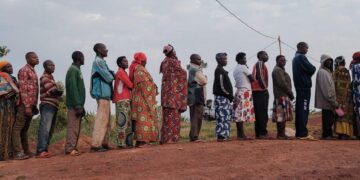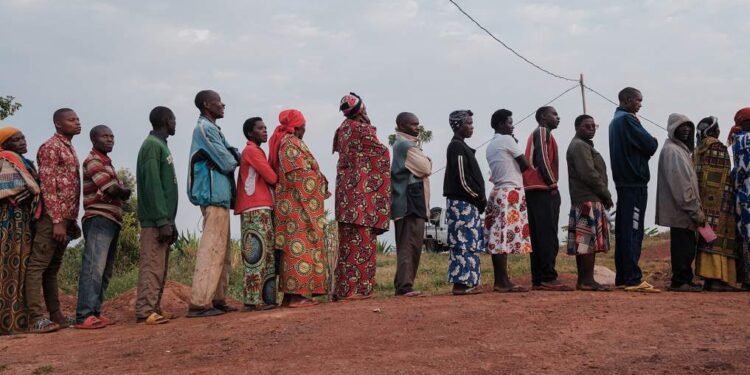By Enyichukwu Enemanna
The Burundian ruling party has won all seats of the National Assembly, the electoral body says, citing provisional results of last week’s legislative elections.
National Independent Electoral Commission (CENI) said by the development, no opposition member will have a seat in the parliament over failure to reach the benchmark in the June 5 elections.
The sweeping victory has sparked outrage from opposition parties, who have condemned the polls as fraudulent and undemocratic.
“The National Council for the Defence of Democracy-Forces for the Defence of Democracy (CNDD-FDD) is the only political party that will sit at the National Assembly, as no other political party or coalition of political parties was able to garner at least 2 percent of votes to be able to claim a seat as provided by the National Constitution and the Electoral Code,” CENI Chairman Prosper Ntahorwamiye said at a press briefing on Wednesday.
He said the CNDD-FDD won 96.51 percent of the votes cast, while the Union for National Progress (UPRONA) came a distant second with 1.38 percent.
Several civil society organisations have raised concern, pointing to a climate of fear and the arrest of opposition polling agents on voting day.
The electoral commission chairman said 98.88 percent of eligible voters cast their ballots at the legislative elections.
The National Assembly will comprise 111 deputies: 100 elected members, eight co-opted members from the CNDD-FDD, and three co-opted members from the Batwa minority group, he said.
It was meant to have 100 seats, and according to the election results, 57 Hutus and 43 Tutsis had been elected.
“However, in order to uphold the ethnic balance stipulated in the National Constitution and the Electoral Code, which require at least 60 percent Hutus and 40 percent Tutsis, eight candidates from the Hutu ethnic group were co-opted,” Ntahorwamiye said, adding that the gender quota of at least 30 percent women was also respected.
He said the list of the elected deputies will be sent to the Constitutional Court for endorsement.
On Tuesday, the Provincial Independent Electoral Commissions announced the results of the election of district councillors.
The CNDD-FDD won most seats in district councils: only 20 of 1,050 seats nationwide went to other parties, including 16 to the UPRONA and four to the National Congress for Liberty.
With no opposition voices in the National Assembly and a deepening economic crisis gripping the country, many fear that Burundi’s fragile democracy is slipping further into authoritarianism.
The country is scheduled to hold senatorial elections on July 23 and village-level elections on August 25, while the next presidential election is slated for 2027.




































